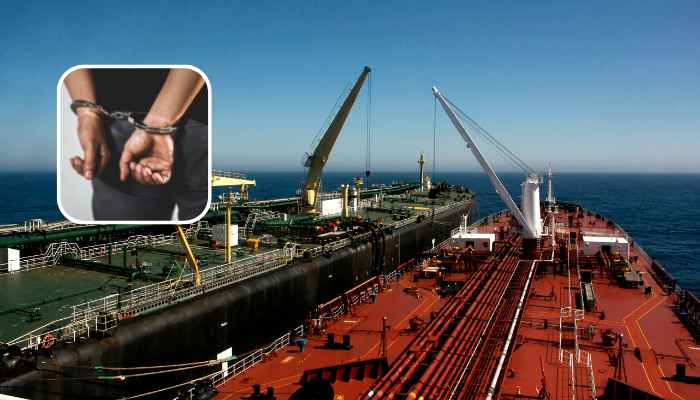

The coast guard declared on Monday that South Korea has reportedly arrested an oil broker for supplying about $14.7 million allegedly worth of diesel fuel to North Korea with zero government approval.
In a press release, Korea’s Coast Guard’s West Sea regional division mentioned that the unnamed broker reportedly carried out more than 35 ship-to-ship transfers to smuggle approximately 18,000 tons of diesel from October 2021 to January 2022.
The coast guard’s investigation specialist team discovered that the broker transferred the diesel fuel from the ROK using an oil tanker from Russia owned by a domestic oil major and transferred the fuel to a vessel of China in the South China Sea, which would again be transferring the fuel to a ship from North Korea.


Authorities reportedly arrested the broker for non-compliance with the Inter- Korean Exchange and Cooperation Act. He supplied oil to North Korea without the unification minister’s authorization. Relevant authorities also charged the domestic oil firm and two employees without detention.
Korea’s Coast Guard did not get into the details about the firm or the broker in its statement. Still, they highlighted that the alleged operation is reportedly consistent with Pyongyang’s long-running practice of unlawful ship-to-ship transfers for evading international sanctions that prevent the import of over 500,000 barrels of oil each year.
Last year, a UN Panel of Experts discovered that foreign vessels known for smuggling oil into the DPRK were turning to hotspots to evade restrictions and flagged Hong Kong- and Taiwanese-registered firms that allegedly helped smuggle illicit crude to North Korea.
Vessels linked to illegal North Korean oil transfers have been known for fraudulently masking themselves and passing off as other vessels to evade monitors. A study by NK Pro and the Washington-based Center for Advanced Defense Studies in July 2022 discovered that Pyongyang could leverage complex overseas networks, get around the levied maritime sanctions, and buy a new vessel.
References: NK News, Financial Times










We believe that knowledge is power, and we’re committed to empowering our readers with the information and resources they need to succeed in the merchant navy industry.
Whether you’re looking for advice on career planning, news and analysis, or just want to connect with other aspiring merchant navy applicants, The Marine Learners is the place to be.